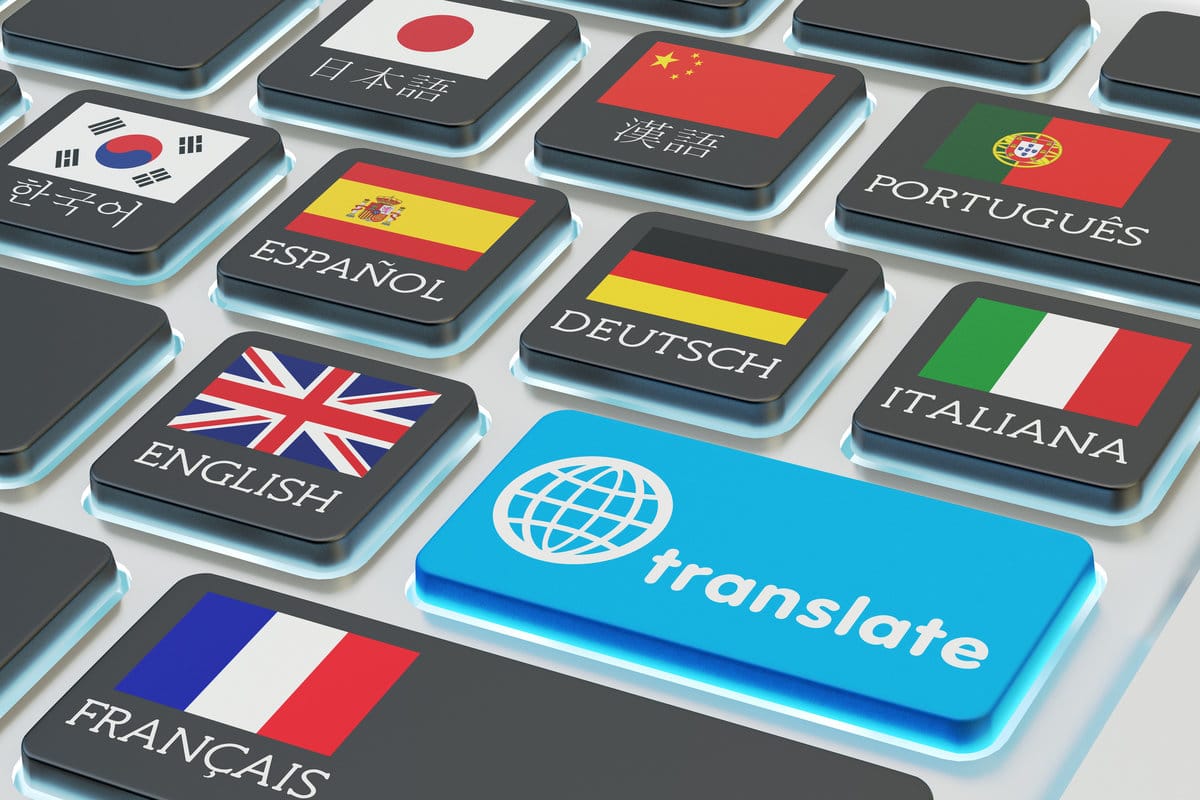Jasmine Birtles
Your money-making expert. Financial journalist, TV and radio personality.


Did you know you could get paid to translate online? Translation services are an increasingly popular – and lucrative – job, so here’s what you need to know and how you could offer your skills in the translation process.
Ever since the globalisation era began, the search for language skills has been on the rise. Today, with thousands of multinational enterprises worldwide, there are more opportunities than ever in the translating business. Being an online translator means you can offer your bilingual skills to companies and authors looking to translate their content and appeal to a wider audience.
If you happen to be one of those lucky bilingual individuals or you want to work with professional translators and help with the translation process, here are a few ideas to generate some extra cash from online translations and become one of the people that get paid to translate online.

One way to find online translation jobs and offer out your translation services is to use freelance platforms. These work as a middle-man between companies or individuals needing translation services and professional translators. You post your profile and services, and pitch for jobs advertised. The platform takes a small commission of any work you complete, but it’s a good way to get started in finding new clients. You can also use these platforms to find a translator for your own needs. So where can we hone our translation skills for money?
Fiverr is one of the most well-known freelance platforms in the world. It’s a free and reliable platform with over 14 million users. While the jobs you can find here range from palm reading to IT and marketing services, some of the most common offerings are translating and transcription services. It is easy to set up an account and your fees based on the length of a project or your hourly rate.
To get started with Fiverr, you need to optimise your profile and write a compelling opening statement about your offering (or ‘gig’ – Fiverr’s term for providing services). It takes a bit of effort to get started – but as soon as you snag a client, make sure you get them to leave you a review. As your reviews build, it gets easier to find work!
Another mediator platform between freelancers and businesses, PeoplePerHour runs on a similar concept to Fiverr. Set up a profile that explains your services and rates, and pitch for jobs.
This website also has a section of urgent jobs listed by companies that you can apply for in minutes. Hence, one of the strongest points of this platform is that you can sometimes get work almost immediately.
Lionbridge offers content, translation, testing, and AI services. All these areas come with multiple freelance opportunities for translation servives. With a variety of translation jobs, this platform is another great option to create a new income stream as a freelance translator. According to Glassdoor, Lionbridge pays its translators between £17 to £20 per hour.
Online translation agencies such as Acclaro is a translation service company always on the lookout for new freelancers.
Unlike freelance platforms, Acclaro handles freelancers with experience. This means you can find jobs with a higher rate of pay. It works like an agency, so you get paid by Acclaro rather than individual clients. Most of their vacancies require a literature degree, language qualifications, or previous experience in translation. The salaries Acclaro offers range between £68,000 to £73,000 per annum.
Perhaps you have an already-translated document that people would be willing to pay money for. In that case, you can increase your income by selling your translation pieces. Being an online translator is as much about creating content to sell as it is finding clients that already have stuff to translate!
A prime example of this practice is the Muller Report case. Although this report was available for free, the Washington Post wrote a book about it and sold it on Amazon. Currently, the report is only available in English and Spanish, both versions having sold hundreds of copies. So, if you have some spare time on your hands, you could also translate the Muller Report in your second language and then sell it online.
However, it doesn’t have to be the Muller Report, it can be poems, songs, short stories, etc.
Look at classical texts, too. They don’t fall under copyright laws anymore (but always check first!). That means you can translate the text, publish it as an eBook or a book, and claim the profits for yourself.
It can be any piece of writing you can find and notice a demand for. Just do your research, be creative, and get those translation skills in action!
When you think of being an online translator, you most likely think of large chunks of text awaiting your bilingual skills. Yet, it doesn’t always have to be like that. If you speak two or more languages and have extensive knowledge and vocabulary of a specific field, you can build a glossary.
A successful example of this practice is the IMF Glossary: English-French-Spanish. It focuses on terms related to macroeconomics, money, and accounting, and the new hardcover version sells on Amazon for £57.
However, it doesn’t necessarily have to be career-focused. The topic of your glossary can be any field you have an interest in. Other examples include El Jefe’s English – Spanish Glossary of Basketball terms, the Harry Potter Glossary, Glossary of Stand-Up Comedy terms, Glossary of Surfing Terms and Surf Slang, etc.
As long as you have a clear understanding of your chosen subject in both languages, you can write a glossary about anything!
If you have confidence in your linguistic abilities, another alternative of making money online is translating a book. Depending on the terms of your agreement with the writer and many like certified translation services, you can claim translation royalties. This way, every time a copy of the book is sold, you receive a percentage of that sale. You can even enter competitions with your translation, and win cash prizes!
Although literary translations can be hard to find, it’s important to be proactive. Writers won’t trust other people with their books unless they know who they are; so, you’ll have to reach out to them.
While getting the first job might be difficult, the rewards are plentiful. One project can be enough to generate money for you long-term, without you having to do any extra work. Hence, it’s worthwhile considering it.

There’s a growing market for real-time professional translators, too. If you’re fluent in two languages, you can use this to offer your services as an interpreter. From police interviews to joining international online business meetings, there are lots of ways to use your business translation servicess as a live translator.
More jobs are online than ever before, so it’s possible to be an online translator even if you’re not in the same location as someone. This is really useful for things like businesses who want to gain international clients. You can sit on their Zoom calls and directly translate the conversation on both sides to make sure a deal is arranged.
If you want to go into live translation, decide on the type you want to do. Police interpreters, for example, often work as freelance translators working with solicitors and lawyers as well as police stations. The more specialised your language skills, such as a language not commonly spoken in the UK, the higher rate you can charge. If you’re operating as a freelance translator, it helps to set up a website that showcases your skills and niches.
If you want to leverage your language skills and you’re not too keen on translation jobs, you can try tutoring and helping with translation assignments. There are millions of people out there who want to learn a foreign language. To reach them, you can simply create an account on platforms like italki or Verbling, which enable students and teachers to come together. All it takes is to set up an account, take a video of yourself for introduction, establish an hourly fee and you’re good to go.
Alternatively, use your translation skills in services like transcription, subtitling, and captions. Some of the main platforms specialising in these services are GoTranscript, REV.com, and GMR Transcription.
The average pay on these websites ranges from $1,000 to $4,000 per month and all of them offer flexible hours. So, if translating is not your cup of your tea, there are still various options you can try, to monetize your linguistic competencies. You just have to try! Why? Because imagine being able to speak two languages and to start losing some of your vocabulary… some people would say that you’re bilingual.
To get paid to translate online and provide translation services remotely, is one way to work flexibly from home. There are, however, tons of ways to make money from home! Check out these articles next.

I can translate English,Gujrati and Hindi as well.
Hi
I can translate very well English to farsi(Persian) and also farsi to English
i can translate well from English to Kiswahili
I can translate well English to french